
Visa exemptions for certain nationalities rei...
read more
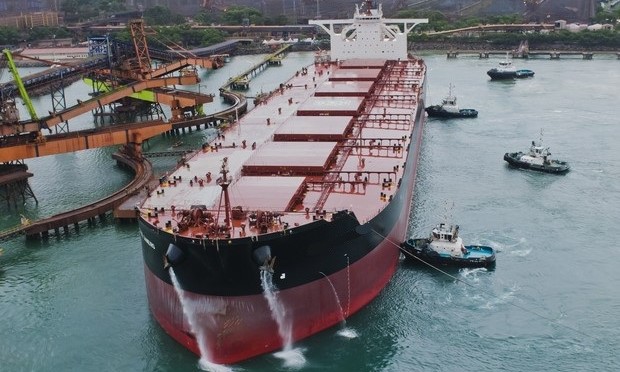
Major mining and steelmaking companies suspended Minas Gerais operations due to downpours that affect dams, stockpiles, and flow of iron ore to seaports
Delays in the shipment of iron ore and port congestions may occur owing to the heavy rains. It remains to be seen whether any quality-related issues will arise as a result of the high moisture levels.
Most torrential rains in Brazil typically fall between December and late March, in the summer. Floods and landslides, unfortunately, often happen during the rainy season. However, it has been raining much harder than average since last October, with devastating consequences. Nine states were impacted, resulting in loss of life and substantial damage to property and infrastructure yet to be assessed.
About ten per cent of Brazilian municipalities have declared a state of emergency due to alarming precipitation levels, mainly in the states of Minas Gerais and Bahia, where destruction and the death toll rise as the inclement weather persists.
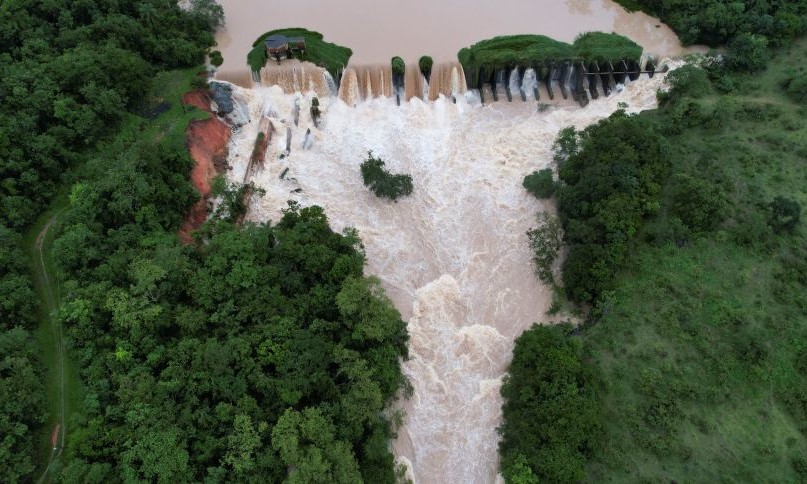
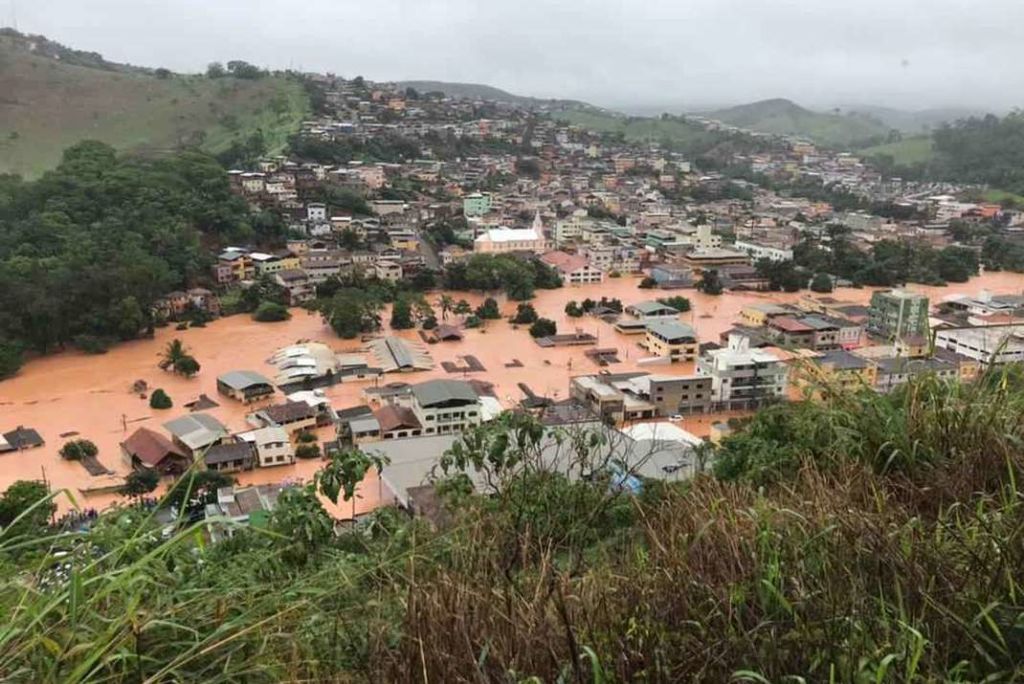
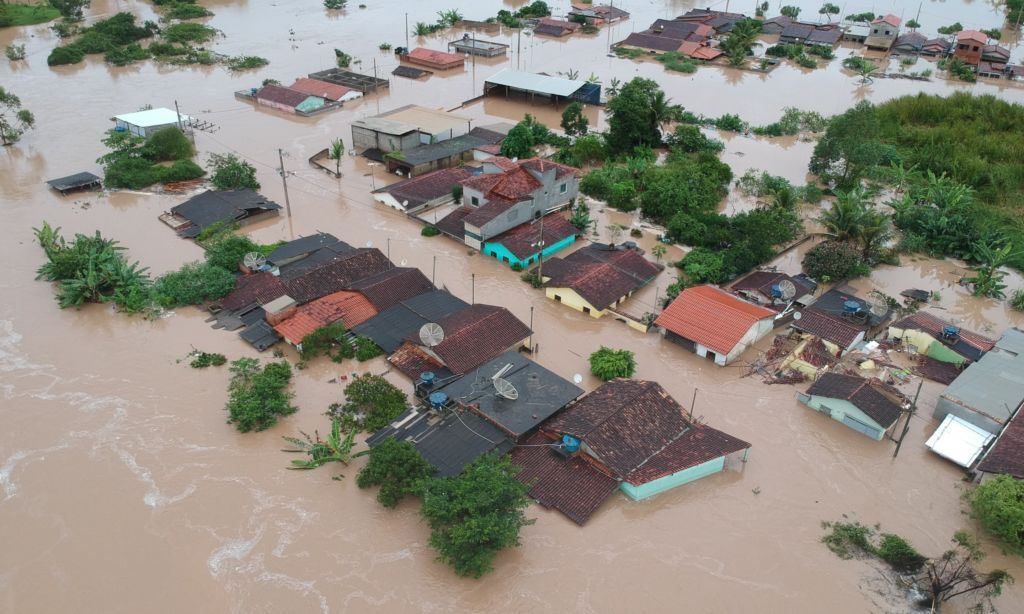
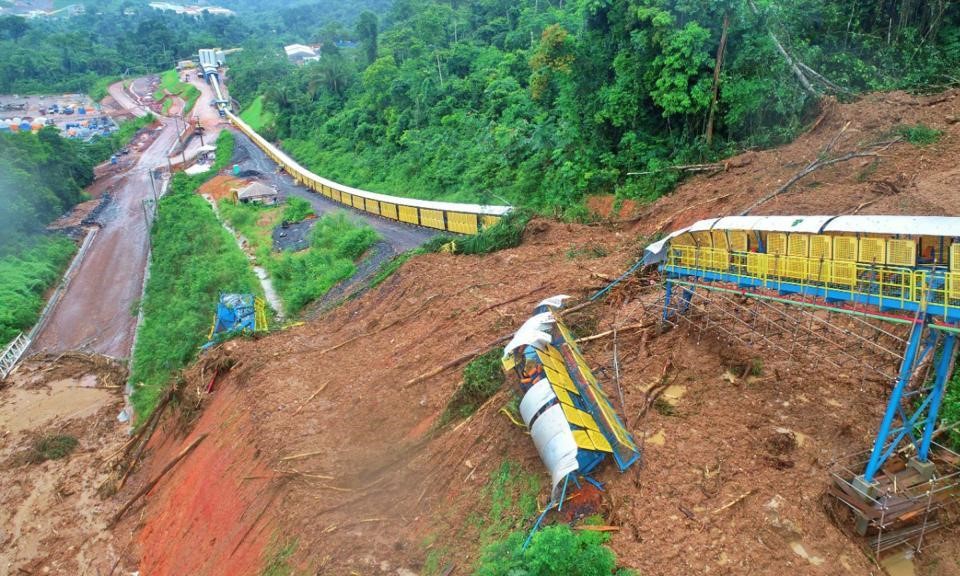
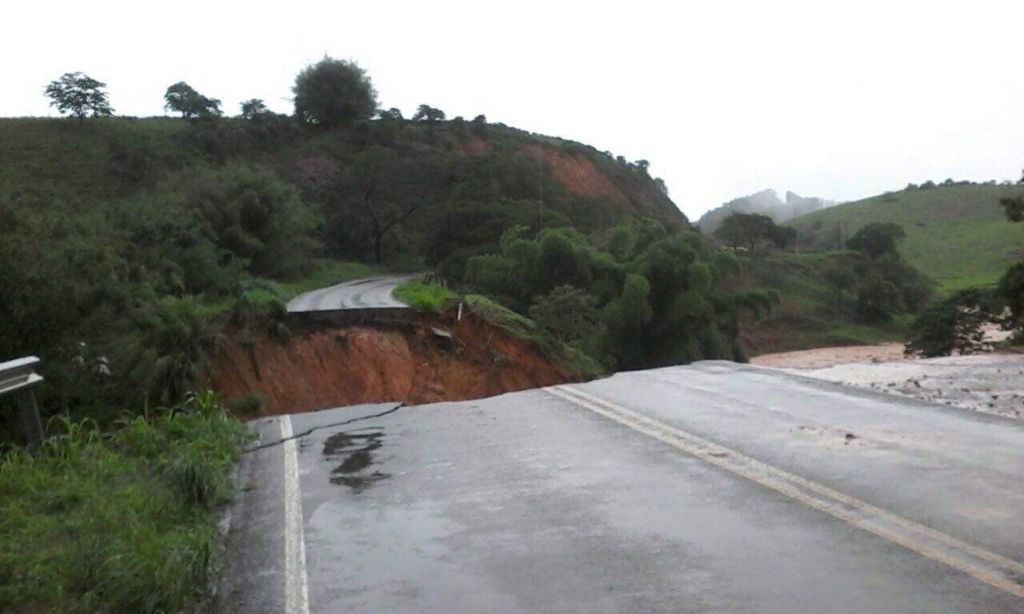
The extraordinary rains have hindered the extraction and hauling of iron ore from Minas Gerais mining facilities to seaports in the states of Espírito Santo and Rio de Janeiro, Southeast Brazil.
Minas Gerais mines
Over the last weeks, Minas Gerais has experienced dam overflows, dyke collapses, landslides and flooding that have killed at least 25 people so far, leaving more than thirty thousand dislodged or homeless.
Highways and railways that transport Minas Gerais’ mining output have been closed or are operating with restrictions. The hilly state is the leading producer of mineral inputs supplied to the local steel industry and exported through southeastern ports. It is also a significant producer of a wide variety of agriproducts.
In recent years, the mining powerhouse state has been the scene of mining-related disasters. In 2015, in the city of Mariana, the failure of a tailings dam operated by Vale and BHP Group’s joint venture Samarco killed nineteen people and displaced hundreds of families. Four years later, the collapse of Vale’s iron ore dam in Brumadinho claimed the lives of 270 people, causing extensive losses. These cases are in the process of reparation of social and environmental damages.
Southeast mining and railing disruptions
On 10 January 2022, the global mining giant headquartered in Brazil, Vale, partially interrupted its train service on a stretch of the Vitória-Minas Gerais Railway (Estrada de Ferro Vitória a Minas – EFVM). n addition to transporting passengers daily, the centenary 905 Km-long EFVM also rails iron ore and other commodities to Vitória in Espírito Santo for export through the Tubarão Terminal.
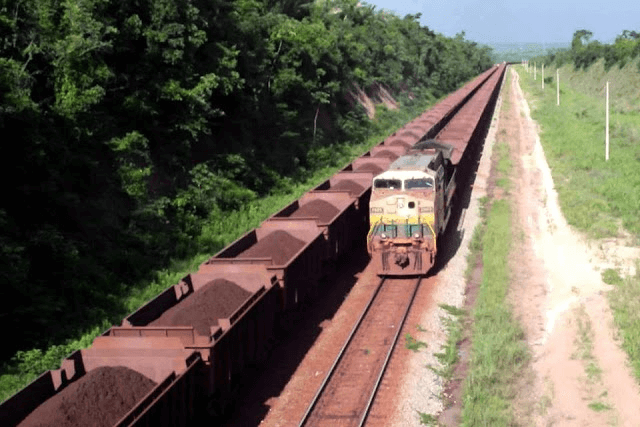
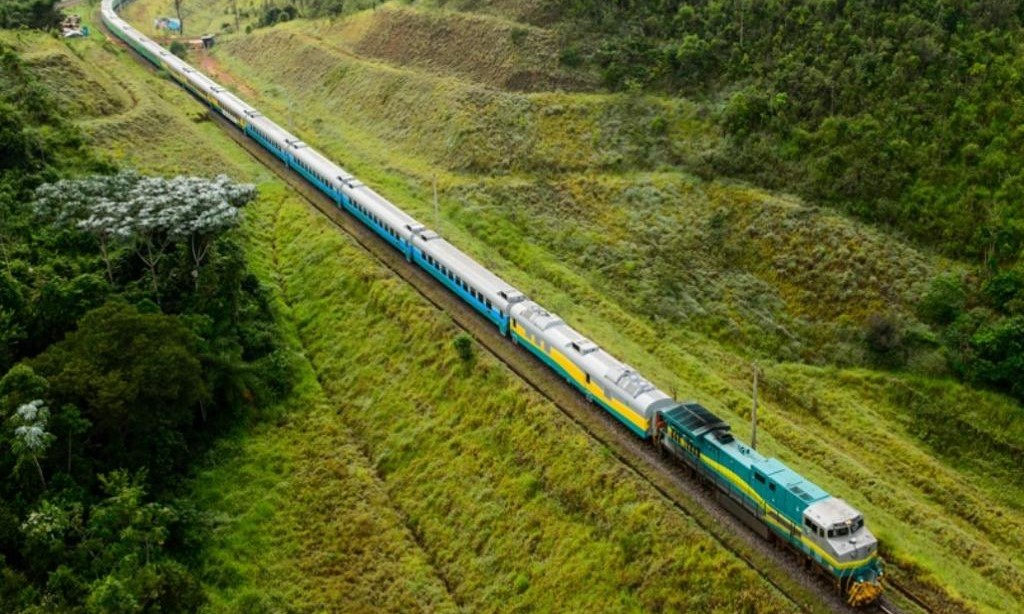


Iron ore stockpiles at Tubarão Terminal are at their lowest levels in years and one of its three iron ore berths will be down for maintenance until the end of January. The next vessel is estimated to berth at Tubarão on or around 19 January.

On 17 January, Vale reported that it had partially and gradually resumed its operations in Minas Gerais as heavy rains in the region held off. the trains service on the EFVM railway was reestablished, allowing the outflow of iron ore to replenish the stocks at the Tubarão Terminal. The miner estimates that the bad weather caused an impact of approximately 1.5 million metric tons (mmt) on iron ore and third-party purchases.
Northeast operations
Vale’s iron ore operations in Northeast Brazil through the gigantic Ponta da Madeira Terminal – PDM in Itaqui (São Luis), Maranhão, remains fully operative, even though some municipalities in that state are in a state of emergency still suffering from the consequences of the downpours.
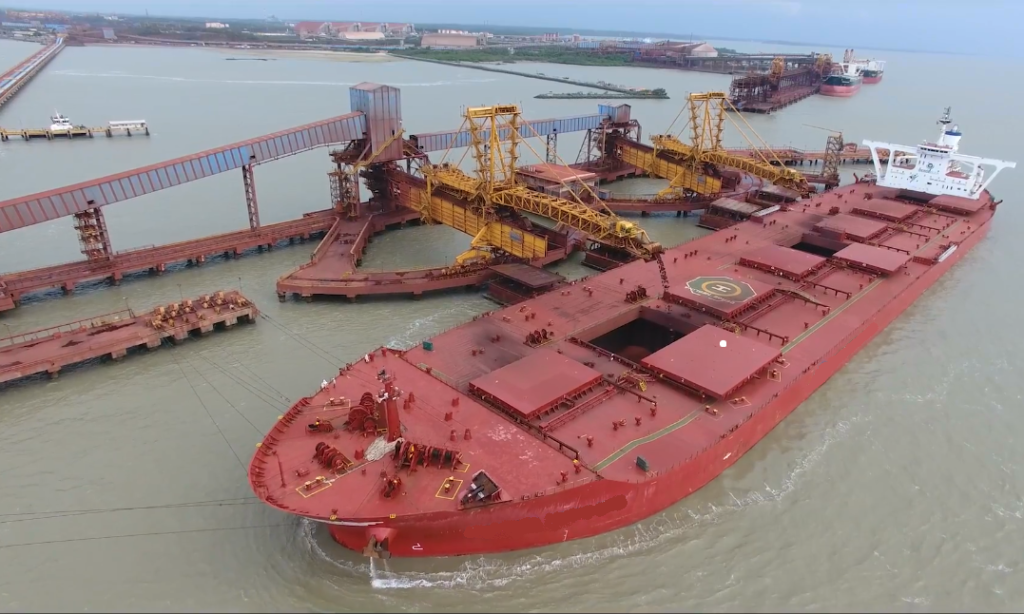
The iron ore exported from PDM terminal is mined in Pará, Northern Brazil. In the first week of January, Vale reported that the heavy rains in that state caused a landslide in its copper project Salobo III, with no personal injury.
Impact on steel mills
Steelmaker Usiminas suspended the operations of its mining subsidiary Mineração Usiminas S.A. (MUSA) in Minas Gerais, which production is shipped through Porto Sudeste in Itaguaí, state of Rio de Janeiro.
Companhia Siderurgica Nacional (CSN) has halted its iron ore and steelmaking operations at the Minas Gerais’ mines, which output is shipped through ports in Rio de Janeiro and Espírito Santo, until the weather improves.
Steel tube-maker Vallourec had a dyke overflow at its mine in Nova Lima that caused a temporary blockage on the main highway linking Minas Gerais to Rio de Janeiro, thankfully with no reported fatalities. Its mining operations in Minas Gerais are suspended by court order at the request of public prosecutors seeking reparation, and environmental fines were levied.
Other major producers, such as ArcelorMittal and Gerdau, were also affected by the heavy rains but did not disclose the extent of the disruptions.
Relevance on the balance of trade
Brazil holds the third-largest high-grade iron ore reserves and is second only to Australia in production. The abundant mineral is the top export commodity in gross weight; it usually alternates the second and third positions in revenues with soya beans and oil products.
Preliminary data from the Foreign Trade Secretariat – SECEX indicates that in 2021 Brazil exported 357 million metric tonnes (mmt) of iron ore worth US$ 44.6 billion, placing the mineral at the top of the FOB sales ranking, followed by soya bean and petroleum.

Vale informed that, since it had considered the impact of the rainy season, iron ore output should remain within the projected 320-335 mmt target range for 2022.
Domestic production
Iron ore is plentiful in Minas Gerais and Pará, in the North region. The two mining states together account for about 90% of the national output. The mineral represents around 60% of Brazil’s seaborne export volumes. Approximately 70% of the shipments are bound for China, and the balance is shipped to other Asian countries and Europe.
Vale dominates the domestic market and operates (directly or through subsidiaries) mining, production, and logistics operations. It moves about three-quarters of all Brazilian iron ore exports through its private ports.
In southern Brazil, iron ore extracted from Vale’s mines in Minas Gerais is railed to its terminals in Espírito Santo (Tubarão) and Rio de Janeiro (Itaguaí and Ilha Guaíba). In the north of the country, the extraction from Vale’s giant Carajás mining complex in Pará is shifted in long train compositions down the Carajás Railway to the PDM terminal in Itaqui, which alone handles more than half of all Brazil’s iron ore exports, followed by Tubarão and Itaguaí.

CSN is the second-largest exporter of this commodity. It extracts iron ore in Minas Gerais and ships it through Tecar in Itaguaí, southwest Rio de Janeiro. Other relevant iron ore operations are carried out by Usiminas’ MUSA in Porto Sudeste, Itaguaí, and Porto do Açu, in northern Rio de Janeiro, which have been handling increasing volumes in recent years.
Cargo liquefaction
Liquefaction associated with the carriage of certain solid bulk cargoes, such as iron ore, is a well-known but recurring problem. Fine-particled ores laden with sufficiently high moisture content are prone to liquefying, which can cause cargo shifting and sloshing during the voyage, leading to a potential loss of stability sufficient to capsize a vessel, often with fatal consequences.
To address the worrying number of accidents associated with liquefaction, the IMO recently revised its International Maritime Solid Bulk Cargoes Code (IMSBC Code) to add a new schedule for “iron ore fines” and to amend the existing individual schedule for “iron ore”. The former is classified as ‘Group A’ cargo (may liquefy if shipped with a moisture content higher than the transportable moisture limit – TML); the latter is graded as ‘Group C’ cargo (not liable to liquefy and without chemical hazard).
Although the new schedule for iron ore fines only became mandatory as of January 2017, the Brazilian Navy’s Directorate of Ports and Coasts (DPC) adopted it as early as December 2013, with support from the shippers. Since then, the iron ore fines mined in Carajás and shipped at the TPM in Itaqui began to be graded as Group A and dealt with following the new provisions of the IMSBC Code.
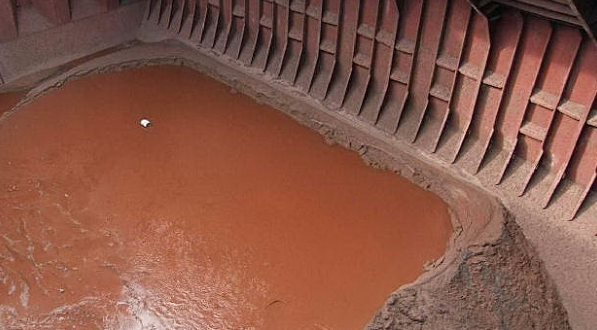
There are no reports of maritime casualties attributed to Brazilian iron ore liquefaction or shifting since the amendments to the IMBSC Code.
Structural damage
While iron ore of specific particle size may fall under Group C, meaning no risk of liquefaction, it may still cause structural damage to vessels owing to overstress of tank tops resulting from high-speed loading rates. Some facilities, such as Vale’s TPM, can load up to a dozen thousand tonnes of iron ore per hour. Therefore, the loading and trimming of such heavy cargo must strictly follow the provisions set out in the Code.
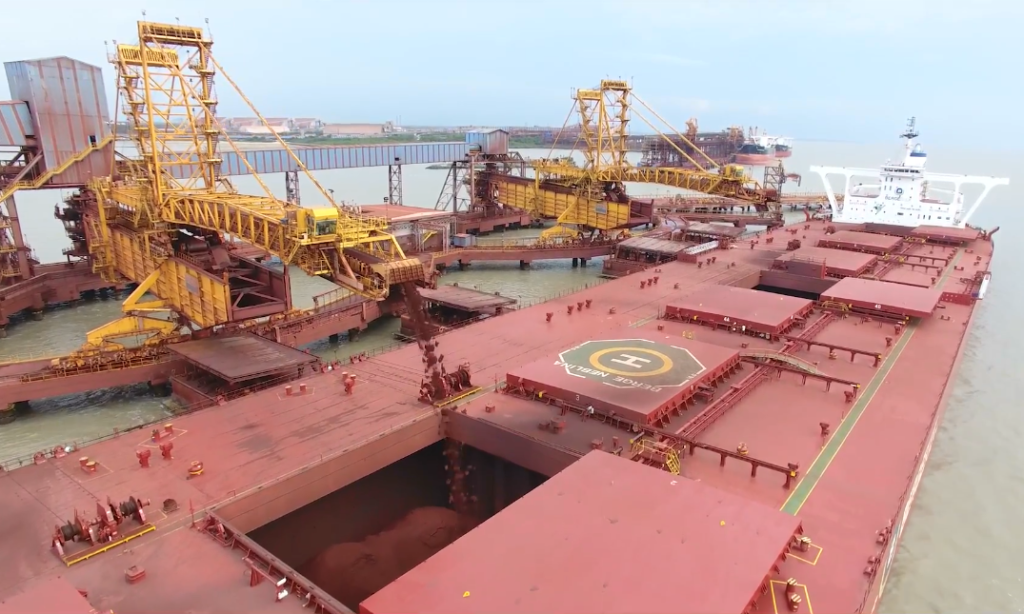
Loss prevention recommendations
To avoid risks associated with the carriage of iron ore and other cargoes subject to liquefaction, masters and crews should:
IMO Circular MSC.1/Circ.1454/Rev.1 of 2015 provides specific “Guidelines for developing and approving procedures for sampling, testing and controlling the moisture content for solid bulk cargoes which may liquefy“.
Please read our disclaimer.
Related topics:
Rua Barão de Cotegipe, 443 - Sala 610 - 96200-290 - Rio Grande/RS - Brazil
Telephone +55 53 3233 1500
proinde.riogrande@proinde.com.br
Rua Itororó, 3 - 3rd floor
11010-071 - Santos, SP - Brazil
Telephone +55 13 4009 9550
proinde@proinde.com.br
Av. Rio Branco, 45 - sala 2402
20090-003 - Rio de Janeiro, RJ - Brazil
Telephone +55 21 2253 6145
proinde.rio@proinde.com.br
Rua Professor Elpidio Pimentel, 320 sala 401 - 29065-060 – Vitoria, ES – Brazil
Telephone: +55 27 3337 1178
proinde.vitoria@proinde.com.br
Rua Miguel Calmon, 19 - sala 702 - 40015-010 – Salvador, BA – Brazil
Telephone: +55 71 3242 3384
proinde.salvador@proinde.com.br
Av. Visconde de Jequitinhonha, 209 - sala 402 - 51021-190 - Recife, PE - Brazil
Telephone +55 81 3328 6414
proinde.recife@proinde.com.br
Rua Osvaldo Cruz, 01, Sala 1408
60125-150 – Fortaleza-CE – Brazil
Telephone +55 85 3099 4068
proinde.fortaleza@proinde.com.br
Tv. Joaquim Furtado, Quadra 314, Lote 01, Sala 206 - 68447-000 – Barcarena, PA – Brazil
Telephone +55 91 99393 4252
proinde.belem@proinde.com.br
Av. Dr. Theomario Pinto da Costa, 811 - sala 204 - 69050-055 - Manaus, AM - Brazil
Telephone +55 92 3307-0653
proinde.manaus@proinde.com.br
Rua dos Azulões, Sala 111 - Edifício Office Tower - 65075-060 - São Luis, MA - Brazil
Telephone +55 98 99101-2939
proinde.belem@proinde.com.br